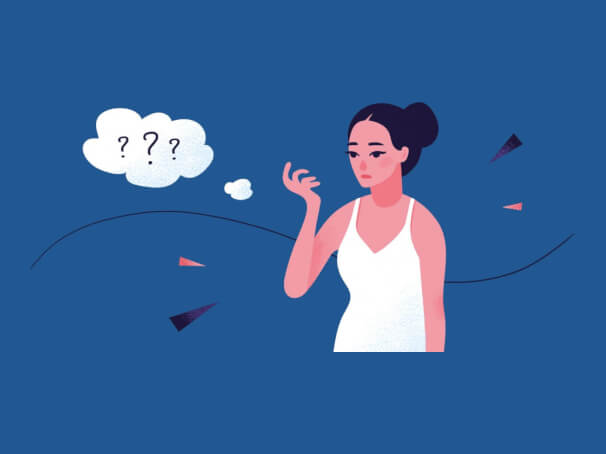
Anxiety is naturally tiring because it causes ups and downs in your energy levels, which can leave you feeling incredibly drained. Some people feel tired throughout the day, while others feel tired only after an anxiety attack. Others feel extreme fatigue, finding they need to take frequent naps in order to regenerate or feeling as though they can’t focus on life.
Feeling tired is a natural bodily reaction that is often caused by stress and anxiety. In this article, we’ll explore the origins of tiredness related to anxiety and what can be done to fight it.
Causes of Tiredness
Tiredness is natural in life, especially if you are not getting enough sleep; but if you have anxiety, you may end up feeling more exhausted than is normally expected.
Many factors may explain why your anxiety is making you tired. The most common ones include the following:
Post-Anxiety Crash
The main reason has to do with the crash you feel after your adrenaline runs out. The official name for this phenomenon is adrenal fatigue. Anxiety is like being on high alert. Your body is preparing you to fight or flee; and so it is flooded with energy so that you can respond to a threat. Then, when that adrenaline runs its course, your body goes through a crash that can leave you feeling drained.
Post Muscle Tension
Anxiety causes profound muscle tension throughout the day, and this often results in a similar “drained” feeling: your body feels tired.
Mental Tiredness
Some of that tiredness is entirely mental simply because your brain — like a muscle — can run out of strength. Anxiety is linked to ongoing, stressful thoughts and an overactive brain. It taxes your cognitive capacities, leading to a drain on your ability to think and react. It also increases your emotional load (due to distressing thoughts), which means you end up emotionally and mentally drained. So it should come as no surprise that all those thoughts make your body tired to the point that it wants you to rest.
Coping
Becoming tired is sometimes a coping mechanism that your body uses to prevent you from experiencing severe stress. Tiredness motivates you to take a break and rest rather than exposing yourself to more anxiety, which could become even more overwhelming.
Inappropriate Naps
Do you often nap during the day? Napping can help you overcome fatigue and reduce anxiety, making it a useful habit in many ways. But too much napping makes it harder to sleep at night, which in turn may increase your anxiety. Naps should ideally last less than 20 minutes to avoid sleep difficulties at night.
Sleep Issues
Many people with severe stress and anxiety also develop serious problems sleeping, for instance, difficulty falling asleep, nocturnal waking (waking up at night without realizing it), and reduced quality of sleep. All of this contributes to an overall lack of sleep, which causes tiredness.
Depression
Finally, anxiety can cause temporary or full depression, especially after an anxiety attack. Depression is linked to a huge loss of energy; and that makes it extremely hard to stay alert throughout the day. If you struggle with depression, it may also be worth speaking with someone to see if you qualify for a diagnosis of major depression, for which treatment might be necessary.
All of these are contributing factors that explain why tiredness may be linked to anxiety, and they don’t even include the hormonal and neural changes that occur during times of severe stress.
What You Can Do To Stop Tiredness
Stopping tiredness is difficult because tiredness is your body’s way of promoting rest when it feels it needs a break. Drinking coffee is one way of doing this, but ideally, you don’t want to do it because it can make your anxiety symptoms worse and make it harder to sleep restfully at night.
The following are some approved ways to address tiredness:
- Taking SHORT Naps: Long naps can be problematic for your sleep needs, but short naps of 20 minutes or less can help your body regain some much needed energy.
- Sleep Hygiene: The National Sleep Foundation recommends “sleep hygiene” tactics to make it easier to get rest, including avoiding any caffeinated food and drink near bedtime, exercising during the day to promote sleep quality, avoiding heavy and rich food before bed, and getting adequate exposure to natural light.
- Engage in Relaxation Strategies: Utilizing relaxation strategies can be valuable for reducing tiredness. Using practices like deep breathing and progressive muscle relaxation can reduce stress during the day so that you are less drained overall.
Finally, the most important change to make is to prioritize reducing your anxiety. Tiredness is much easier to prevent than it is to stop. That’s why you need to take steps to start controlling your anxiety better. The less intense your anxiety is, the less tired you should feel.
SUMMARY:
Anxiety not only causes feelings of tiredness as a symptom - it also causes changes to how your body operates that can make you genuinely sleepy. Often times, the solution involves simply getting rest, as your body is telling you it is tired because it needs to recharge after a day of struggling with anxiety. If the goal is to be less tired, then the only way is going to be to reduce anxiety and its symptoms.











